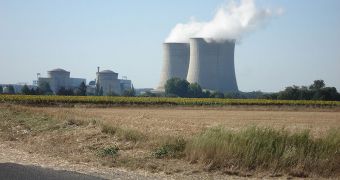Many nations have redefined their position regarding the nuclear power usage, after the devastating impact of the Fukushima disaster. Countries like Belgium, Austria, Germany and Switzerland started to realize the seriousness of the threats behind this industry, so they are presently trying to replace the benefits provided by nuclear power with safer, green alternatives.
On the other hand, representatives from the French administration say they are willing to pay the price of their nuclear activity, since they cannot afford to give up nuclear power, at this point in time.
This statement belongs to Henri Proglio, chief executive of Electricité de France and has been published in Le Parisien newspaper.
He highlights the fact that France might be, at this point in time, the only country that has ensured its energetic independence, due to the continuous exploitation of nuclear power.
What people might not be aware of is the fact that France satisfies three quarters of its energy demand while relying on atomic power, a significant percentage which somehow justifies Proglio's statement.
He indicated that the nation would have to invest $544 billion to create new fossil fuel power plants able to replace the nuclear power they have to give up.
A potential plan to respond to the energy demand by exploiting safer resources implies the fact that the electricity price would double. Also, such a goal would trigger a growth of the greenhouse gas emissions by up to 50%, which will certainly affect the air quality.
Taking into account the effect this initiative would have upon the national economy, Proglio stated that 400,000 jobs would disappear if this sector were abandoned, along with 100,000 jobs which are related to the nuclear exports.
All in all, one million people would risk to become unable to put food on the table.
‘‘In total, about one million jobs would be endangered,and that would cost 0.5 percent to 1 percent of gross domestic product. None of this is unimaginable. Technically, it’s feasible, and we could choose to do so. But that’s what it would entail,” declared Proglio for Le Parisien.
The Fukushima incident separated the French nation into two major groups: those who think the country should abandon its nuclear activity and those who say that this option isn't valid, due to its potential negative consequences upon the national economy.
At the same time, it seems that the nation's demand for energy is growing faster than expected. If it follows the same path in the near future, France will have to obtain 625 terawatt-hours by 2030, compared to the 488 terawatt-hours which appeared to be enough for the country in 2010.

 14 DAY TRIAL //
14 DAY TRIAL //